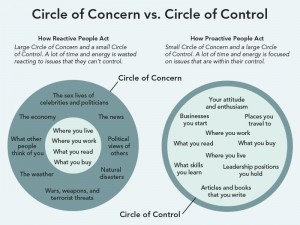
A topic at the World Economic Forum (WEF) at Davos this year was the question “How do we upskill a billion people by 2030?”
Product Owners and Scrum Masters are specifically named on the WEF list of Jobs of Tomorrow. All the other skills that Development Teams need in the digital age, especially software development, data science and cloud computing, needs upskilling of not only the workforce, but also our education systems and the cultural circumstances.
Why Upskill?
The reason is, that we need a whole system upgrade. This is well summarized by Roland Flemm and his blogs on System Thinking: Complex Adaptive Systems and What are Wicked Problems and why should I care? Daniel Schmachtenberger calls this Phase Shifting Humanity. To be able to upgrade our systems, we need to upskill the people involved. Technology helps us to connect for a higher level of collaboration and collective intelligence.
Humanity has always been in a learning process. Heading back to ancient cultures, through agrarian and industrial ages right into our globalized world with digitalization and many other challenges.
When looking at the history of management in organizations and what mostly is being taught at business schools today, you get pointed towards Taylorism and Frederick Winslow Taylor. His scientific management originates at a time, where efficiency was key to manage reproduction of material goods in factories: the industrial age. Taylor had precise ideas how to split the work between management who do the planning and workers who execute the tasks. In the context of efficiency in the factories of that time, this approach to analyze work and find the one best way to do it, was ingenious and brought wealth to the industrial nations. Workers got educated in school and this knowledge lasted for a working life.
In the digital age the rules for success are contrary to the industrial age. Software is at the core of innovative products like cars, financial products and even shoes. The reproduction of software is done by a simple copy instruction. The development of a product now is the focus. Development of products and services is an ongoing process. It is empirical and needs feedback loops for improvement. Even Edison worked in this way when he developed the first light bulb. He inspected and adapted more than 1000 ways to learn how a lightbulb works. Once the light bulb was perfected, it got reproduced millions of times with the help of Taylors scientific management. Taylorism would have been an impediment to Thomas Edison if he would have tried to apply it while figuring out, how to invent the light bulb.
During the industrial age, the school system, including higher education and management schools got invented and aligned to the prevailing paradigm. It was the success story of western culture. In the digital age this paradigm is outdated, because the reproduction phase of the products and services is diminishing. Scientific management is replaced by empiricism, which means feedback loops for inspection and adaptation of the product. Agile concepts like Scrum embrace empiricism. Our school systems need upgrades to prepare their students for the jobs of tomorrow.
Transformative Dimensions of Upskilling Adults
Jack Mezirow did pioneering work in transformative learning and states in his book Transformative Dimensions of Adult Learning, “As adult learners, we are caught in our own histories. However good we are at making sense of our experiences, we all have to start with what we have been given and operate within horizons set by ways of seeing and understanding that we have acquired through prior learning.” To make sense of everyday life, we have adopted the socialization through schooling that prepared us for the industrial age as our ultimate truth and reality. As Mezirow puts it “In order to be free we must be able to name our reality, to know it divorced from what has been taken for granted, to speak with our own voice. Thus it becomes crucial that the individual learns to negotiate meanings, purposes, and values critically, reflectively, and rationally instead of passively accepting the social realities defined by others. Transformation theory provides a description of the dynamics of the way adults learn to do this.”
We need to do the shift from the socialization concepts that got programmed into the core of our reality, reaching back to our childhood, that were well meant to make us thrive in the competition for jobs in the industrial age, to the concepts that help us embrace the virtues of the digital age.
What is Transformative Learning?
What we have learned in schools is not just mathematics and physics, but it shaped our reality. It is our socialization. It formed what we value. It created our self-concept. We have internalized a command and control world from the first day of school. We can never be totally free of our past. To enfoster such a profound shift in thinking and behavior as self-organization in teams and in management needs more than a new process with new rules. According to Mezirow “Transformation theory provides a description of the dynamics of the way adults learn to do this.”
Sensory memory is seen as visual or auditory copies of stimuli, that is stored in short term memory only and decays fast, if not processed further. This means, that if students are just reading or hearing messages, they do not stick. Experiencial learning, where we do what we learn ourselves, strengthens our personal meaning system by refocusing or extending our expectations about how things are supposed to be. When stimulus-response associations are increased, the retention is high. Learning and memory are by-products of the transaction between individual and context. Learning by doing is the key.
Scrum as a Context for Ongoing Transformational Learning
Looking at the data presented by the World Economic Forum Davos 2020, it is an enormous task we need to upskill people. Learning as Mezirow puts it, means that meaning is sense making. The talents of tomorrow want to be able to harness their own potential to fulfill their hearts desire to thrive in the digital age and help create a sustainable future world. This is what makes sense to motivated people.
Scrum Teams have a built in experiential learning aspect by nature. Sharing knowledge and learning from each other is at the core of each sprint. Self organizing teams should be cross functional. This is the fast lane to upskill each other. Companies that have agility in their DNA do not only share knowledge between team members, but also between teams. The result is an organization that learns continuously.
Watching hundreds of Scrum Teams in the last years, this aspect of Scrum seems to have the toughest learning curve. As stated earlier, most members were socialized and educated by systems cultivated in the industrial age, where personal knowledge was the biggest asset, not continuous learning through sharing. In school the person with the most knowledge got the price for the best of the year, not the person who was most collaborative.
Most companies still today incentivize personal knowledge as capital with gratifications with bonus systems. These companies were founded and thrived in the industrial age. These are tough circumstances for creating cultures where positive stimulus-response learning curves foster sharing of knowledge. It is not enough to upskill the workforce. An enterprise is a complex adaptive system with wicked problems, that needs a whole system transformation.
Agile Transformative Learning Organizations
Upskilling the workforce in the near future is a large task. It is a development task, not a design task. It is like developing a new product: it is new, that is why we do not have a precise plan. We can develop our company by inspection and adaption. Just as any other new product, we need an empirical approach. This new management paradigm for the digital age will not end soon. Upskilling is a continuous process, just like a piece of software needs upgrading again and again, step by step just like a continuous deployment process.
You will not find the professionals of the future described by the WEF, with promising job titles, like Data Scientist, Artificial Intelligence Specialist or Cloud Engineer, in the marketplace or on a job platform like indeed.com. You will find them in our own company. Your organizations will be the ongoing school for these new jobs, as they emerge.
Business & Finance Articles on Business 2 Community
(53)






